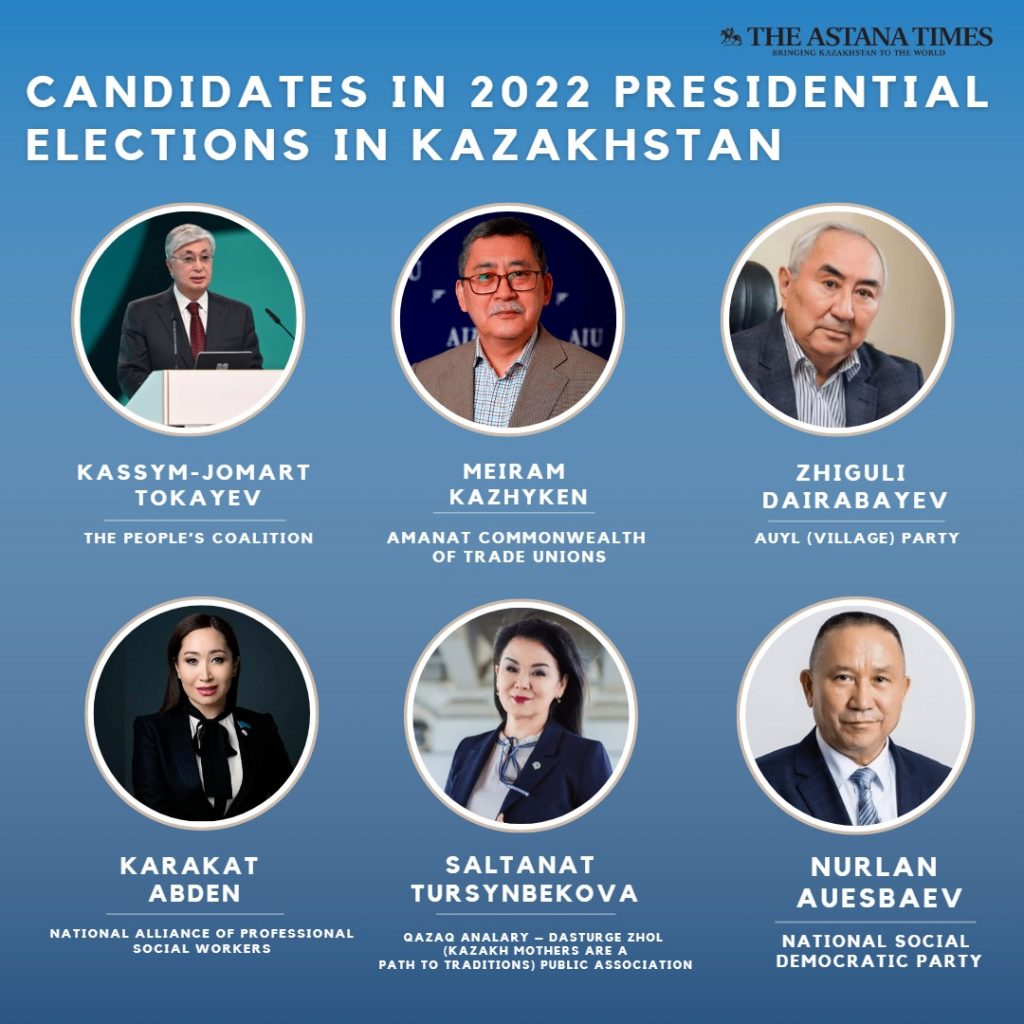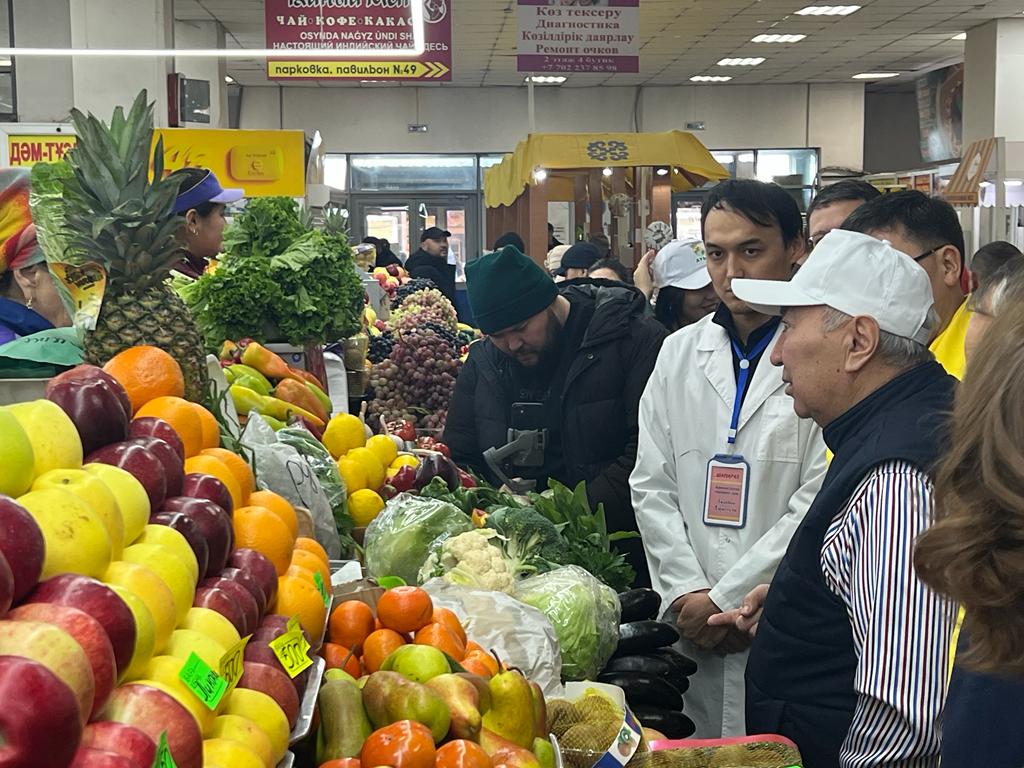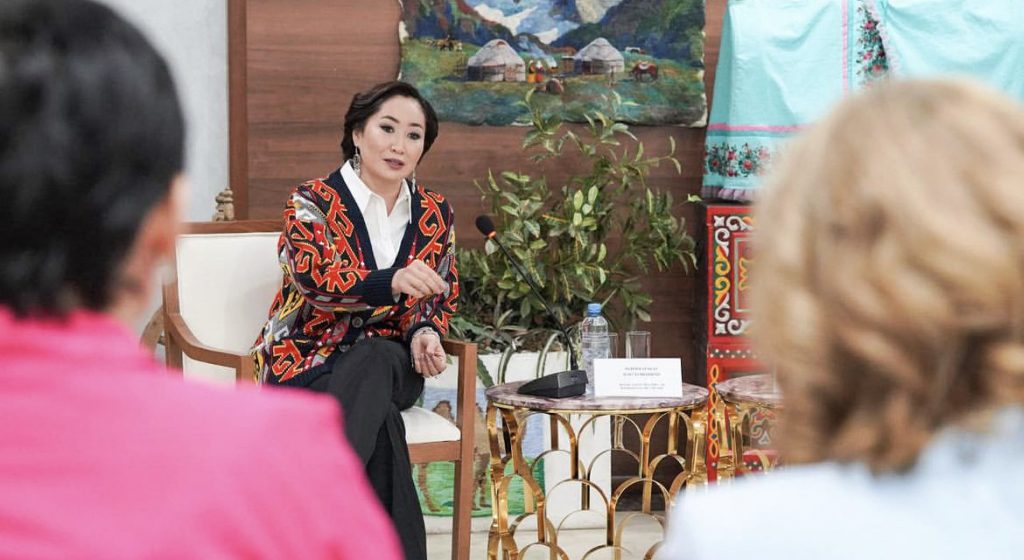
The presidential election in Kazakhstan, scheduled for November 20, is considered important because the time has come to reset the political system in the country. There is a growing demand for change in the Central Asian republic, which experts hope the election can bring about.
Early this year, an attempted coup made the authorities sit up and take notice of the public sentiment — the people want reforms.
Since then President Kassym-Jomart Tokayev has made numerous amendments to the Constitution aimed at democratising the system.
Among the most significant decisions he took was to limit the President’s term to a single seven years.
This led to the election being held early as his original five-year term was to end in 2024.

“Seven years is a sufficient period for the implementation of any ambitious programme,” Mr Tokayev (above) told the citizens. “Limiting the presidential mandate to one term will ensure the maximum focus of the Head of State on solving the strategic tasks of national development.”
The constitutional model proposed by him will significantly reduce the risk of monopolisation of power, which was reportedly the case under the previous President Nursultan Nazarbayev.
A seven-year presidential term will make it possible to implement large-scale changes in the democratic process, such as making the political system more accountable, ensuring transparency and increasing efficiency.
The elected president will also have to work for the benefit of the country.
“This is a transition to a completely different level, which will contribute to strengthening the overall vector of development of the political process,” said Mr Rustem Kadyrzhanov, chief researcher at the Almaty-based Centre for Political Studies of the Institute of Philosophy, Political Science and Religious Studies.
President Tokayev’s Sept 1 decision to call for an early presidential election was a surprise to many. But experts believe it was made considering the challenging external circumstances.
“If you look at what is happening in the world right now, several things, both geopolitical and domestic, have had a direct impact on the decision to hold an early election,” said Mr Serik Kakybalanov, an expert at the Kazakh Institute of Social Development. “The (tragic) events at the beginning of the year initiated the reforms.”
Many believe the new presidential system will bring about political stability and strengthen the social structure.

Mr Zhiguli Dairabayev campaigning at Astana’s Shapagat market. Photo credit: Dairabayev’s electoral headquarters
If it is adopted, it will surely usher in a new political era in Kazakhstan. By the middle of 2023, all the main political institutions will be rebooted and updated: the President, the Parliament and the Government.
“I think a seven-year term is needed because the world is getting more complex and changing very quickly,” said political scientist Adil Junussov. “It will be enough to spearhead the reforms.
“Over five years, there is sometimes not enough time to implement the planned programmes. We expect the Nov 20 elections not to be about personalities but rather programmes – which will present the best solution to get us out of the situation we are in.”
For sure, the Nov 20 election is an important event in the political history of Kazakhstan. It could bring to fruition Mr Tokayev’s ambitious goal of building a fair Kazakhstan with open competition and equal opportunities for all.
The public perception of Mr Tokayev has notably changed since he took office in June 2019. Initially, many perceived him as a lackey of Mr Nazarbayev, who had been in power for nearly 30 years. He is now seen as standing separately from Mr Nazarbayev’s legacy.
Apart from Mr Tokayev, who is running on the platform of Just Kazakhstan, Mr Nurlan Auesbayev, head of Astana’s branch of the National Social-Democratic Party, is campaigning for giving power to the people and a free society.
The other presidential candidates are Mr Meiram Kazhyken, a doctor of economic sciences and head of an Astana-based think tank, who wants to create “equal opportunities for all to develop their abilities and implement them”; the Auyl party’s Zhiguli Dairabayev, who stands for “principles of steppe democracy, high spiritual and moral culture, a strong agrarian sector and strong regions”; and two female candidates Karakat Abden and Saltanat Tursynbekova.

Ms Karakat Abden during her meeting with light industry representatives on Oct 26. Photo credit: Abden’s Instagram account
In the history of elections in Kazakhstan, it is only the second time that women have been nominated. The 2019 presidential elections saw the first woman run for the presidential office – Daniya Yespayeva from Ak Zhol Democratic Party, who received 5.05 per cent of the votes.
Ms Tyrsynbekova positions herself as a candidate with a strong social agenda, while Ms Abden’s campaign focuses on “looking at all issues as a woman, as a mother, as a child of the Kazakh people _ each issue from the point of view of national values.”
The last time Kazakhstan citizens voted for a new president was in June 2019, a rightfully historic moment for the country in its own right after First President Nazarbayev unexpectedly stepped down in March.
For the first time in Kazakhstan, the citizens chose a new president. Mr Tokayev won with 70.76 per cent of the votes and his nearest challenger Amirzhan Kosanov received 16.2 per cent.












